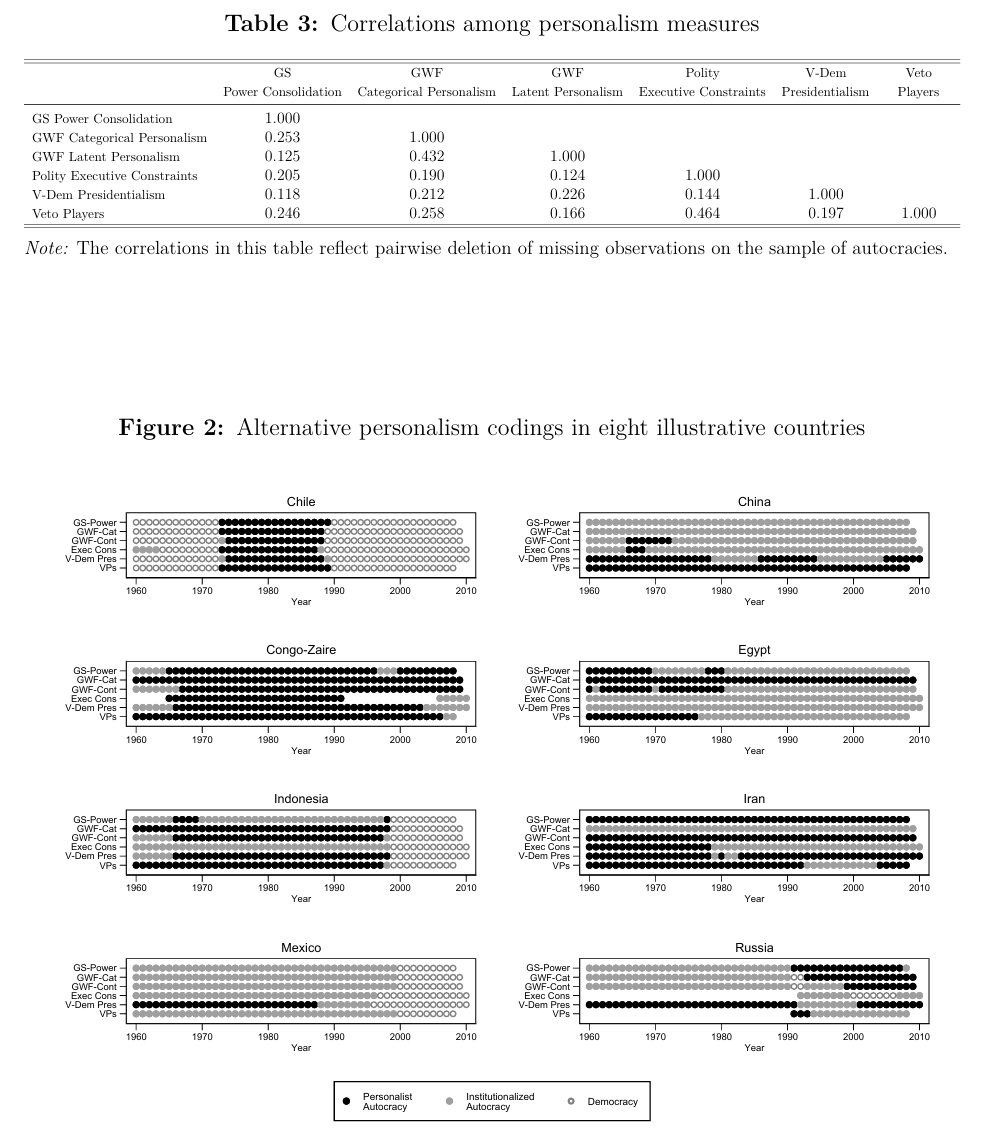というNBER論文が上がっている(H/T タイラー・コーエン;ungated版へのリンクがある著者の一人のページ)。原題は「The Personalist Penalty: Varieties of Autocracy and Economic Growth」で、著者はChristopher Blattman(シカゴ大)、Scott Gehlbach(同)、Zeyang Yu(プリンストン大)。
以下はその結論部。
The dangers of personal rule have been apparent for centuries. In Discourses on Livy, Niccolo Machiavelli contrasted personalist princes to other forms of autocratic rule—oligarchies and elite-ruled republics. A government of well-organized people, he argued, rules more prudently and more stably than that of a prince, who is more prone to tyranny and wickedness (Machiavelli, Bondanella and Conaway, 1531/1997; McCormick, 2018).
Our analysis of regimes from 1960 to 2010 provides cautious support for Machiavelli’s observations. To the extent that we observe an autocratic growth penalty, it is concentrated in unchecked regimes where power is more concentrated. In contrast, there is no evidence that institutionalized autocracies perform worse—or better—than democracies. With respect to mechanisms, personalist autocracies appear to suffer from some combination of lower private investment, worse public goods, and greater conflict, all of which are consequential for productivity and growth.
Our broader point, however, is that it is time for the study of economic growth to move beyond comparisons of autocracy and democracy. There are many dimensions of regime type: recent work on the economic performance of populist leaders provides an example of what else can be done (Funke, Schularick and Trebesch, 2023). Autocracies in particular are highly heterogeneous, and the measures used here weigh underlying characteristics differently. Isolating the most important sources of variation can provide further insight into economic growth and the various penalties of autocratic governance.
(拙訳)
個人による統治の危険性は何世紀もの間明らかだった。政略論でニッコロ・マキャヴェッリは、個人による統治を行う君主を、専制的統治の他の形態――寡頭制およびエリートが統治する共和制――と対照させた。良く組織された人々による政府は、暴政と悪政に走りがちな君主制の政府よりも、慎重かつ安定的に統治する、と彼は論じた*1。
1960年から2010年までの体制についての我々の分析は、マキャヴェッリの言葉を用心深く支持する。成長に対する専制主義のペナルティを観測する時、それは権力がより集中する、制約を受けない体制に集中していた。一方、制度化された専制主義のパフォーマンスが民主主義に劣る――もしくは勝る――という実証結果は得られなかった。メカニズムについて言えば、個人支配の専制主義は、低い民間投資、悪しき公共財、大きな摩擦という、いずれも生産性と成長に影響を及ぼす事象の組み合わせに悩まされているように見える。
だが、我々のより広範な指摘は、経済成長の研究は、今や専制主義と民主主義の比較を超えたところに移行すべき、ということである。体制の種類には多くの側面がある。ポピュリストの指導者の経済パフォーマンスに関する最近の研究は、他にどんなことができるか、という事例を提供している(Funke, Schularick and Trebesch, 2023*2)。特に専制主義は極めて多様であり、ここで使用した指標は、それを構成する特性を様々に加重した。ばらつきの最も重要な源泉を分離すれば、専制的支配の経済成長と各種のペナルティについてさらに考察を深めることができる。
パネル分析の手法はアセモグルらの2019年の論文*3を拡張して用いたとの由。
以下は分析に用いた個人的支配の6つの指標の相関表と、分析対象の8か国におけるその指標の推移図。

分析期間以降の中国の個人支配の強化でこの図が直近でどうなっているか知りたいところではある。
*1:原文の参照文献:
*2:cf. ポピュリスト指導者と経済 - himaginary’s diary。
*3:Acemoglu, Naidu, Restrepo, and Robinson. 2019. Democracy Does Cause Growth。

